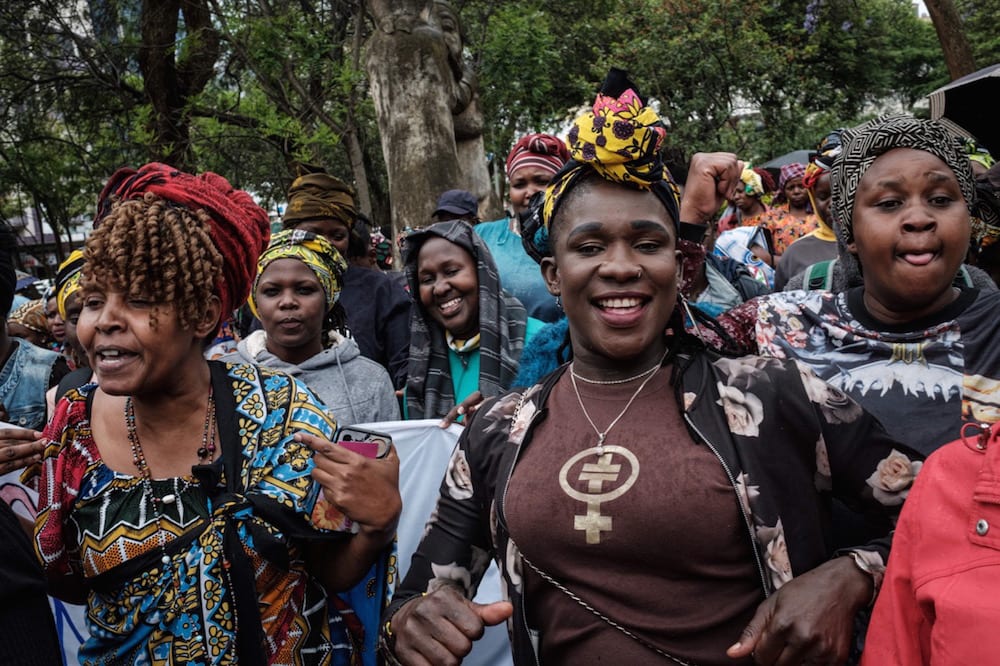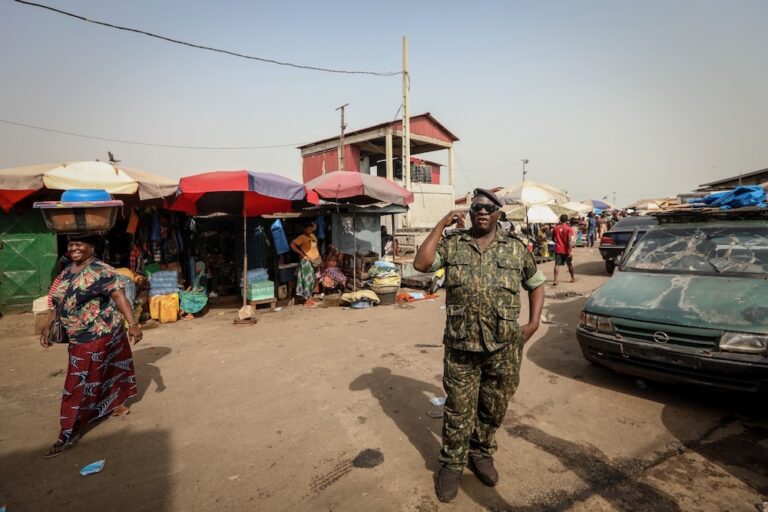In her contribution to IFEX’s series marking International Women’s Day, Regional Editor Reyhana Masters looks at how women are disadvantaged when it comes to accessing public information.
Access to information is considered essential to the right of freedom of expression in the African Charter of Human and Peoples’ Rights and the Declaration of Principles on Freedom of Expression in Africa. Right to Information (RTI) legislation has been enacted in 25 countries in Africa. It is meant to open doors for equitable access to information for all – irrespective of race, gender, religion, class or ethnicity.
However, the inclusive language contained in this legislation, such as “every individual,” falls short when it comes to societies with entrenched gender discrimination.
In Tanzania, an information officer in a government department denied a journalist her right to access information because “of the way she was dressed,” recalls Juliet Nanfuka, research and communications officer at the Collaboration on International ICT Policy for East and Southern Africa (CIPESA).
It could be argued that making access to information requests available online makes it accessible to more people. But it’s not so simple.
“If you go to the online space, where physical appearance does not so obviously come into play, there are still issues of affordability, or lack of digital literacy,” adds Nanfuka.
“The issues around affordability go back to the basic economic divide between men and women. We have to ask ourselves: who can afford access to the internet? If we look beyond the journalists, it could be community members who simply need info on what is happening in their space. But if data is prohibitively expensive, that impacts on their capacity to access this space,” she adds.
This observation is confirmed by findings in The Mobile Gender Gap Report 2020 launched on 4 March by the GSMA, which affirmed that “literacy and digital skills remain the greatest collective barrier to mobile internet adoption for women in Africa.”
Prior to 2011 only five countries in Africa had passed Freedom of Information Acts. Governments often wish to entrench their rule and are unwilling to let citizens access public information. Holding back information is synonymous with power, control and impunity.
But things began to change in 2010, when the African Commission authorised then-Special Rapporteur on Freedom of Expression and Access to Information Pansy Tlakula to develop a Model Law on Access to Information for Africa (Model Law), which was adopted in 2013.
As Tlakula noted in her introduction to the 2018 publication “The Model Law on Access to Information for Africa and other regional instruments: Soft law and human rights in Africa”:
“It was the first time the African Commission had adopted a model law on any subject matter. It was also the first time that the African Commission had engaged in such extensive public consultations with high-level stakeholders prior to the adoption of a soft law instrument. Finally, it was the first time that the African Commission had launched an intensive advocacy campaign to create awareness and build capacity for the implementation of a soft law document that involved high-level meetings with the African Union Commission, regional economic communities and policy makers in state parties.”
During her term, Commissioner Tlakula played a critical role in assisting civil society organisations improve the legislative framework for freedom of expression and access to information legislation on the continent. She was instrumental in developing the African Union guidelines on Access to Information and Elections for Africa, as a means of guaranteeing the credibility of elections on the continent.
When genuine access to information is effectively implemented, women have a new instrument to help them overcome gender disparities and traditional restrictions that have historically kept them disempowered and disenfranchised.
As described by The Carter Center, access to information “empowers women to make more effective decisions, for example with relation to education, crop production, land ownership, and health care, and it is critical for holding government and service providers accountable. It reduces corruption, bridges gender gaps and helps to shift power and provides opportunities for women’s economic empowerment.”
“The presumption is that every person has the capacity to access information in the same way, but what we find is that women are particularly disadvantaged when it comes to accessing public information,” highlights Zoe Titus, executive director of the Namibia Media Trust.
Disproportionate levels of poverty and education, poor health and nutrition, lack of political power, limited workforce participation, gender-based violence, and female genital mutilation all contribute to the cultural bias, prejudices and economic access that have become barriers denying women their right to know.
The Africa Freedom of Information Centre (AFIC), with 41 members in 22 countries, has been working for over a decade to promote citizens’ access to information on the continent. According to Gilbert Sendugwa, AFIC’s executive director, women are particularly disadvantaged in terms of accessing public information.
In 2019, AFIC carried out research in Kenya, Nigeria, and Malawi and produced the report Deepening Open Government through Women’s Participation in Public Contracting. In it, they conclude that “[w]omen face various barriers to participating in entrepreneurship and public procurement against their male counterparts. The societal stereotypes and patriarchal systems deny them many opportunities to expand their business potential and participate in public procurement.”
Many of those lost opportunities are connected to insufficient access to information.
When identifying district information officers for training on their obligations to disclose information, AFIC found the ratio between women and men in these roles was 1:4 across the three countries.
Nanfuka from CIPESA explains: “A young woman may not be able to acquire the information she needs because of the whole questioning authority dynamic – ‘who are you to ask me.’ It is about both power and gender dynamics. So at a very simple level that affects the extent and manner in which the laws are implemented or realized.”
The systemic gender inequalities perpetuated in most African societies severely impede the enjoyment of rights that women are envisaged to realise from the passage of Access to Information legislation by their governments.
Access to Information legislation has the potential to create a more level playing field, but using gender neutral language is not enough. While these laws aim to provide clarity, precision and unambiguity, they fail to take into account the gender dynamics that women contend with in their day-to-day lives.
“So many laws assume that both genders will be treated equally, but that is not the case. During discussions the idea of laws that recognise gender dynamics keep coming. Laws that are framed with a gender sensitive lens will acknowledge the lived experiences of the people the laws will impact,” said Nanfuka.
There is no doubt that, as the continent works toward gender-fair language in legislation, to reduce gender stereotyping and discrimination, there will have to be a matching effort to get society to change, as well.



